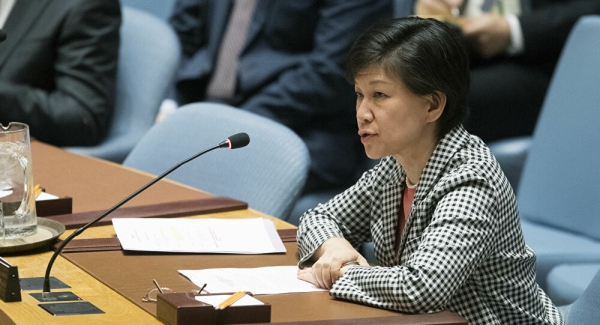As 2020 marks the 10th anniversary since the adoption of the Resolution 65/69 of the General Assembly on Women, disarmament, arms control and non-proliferation, the European Leadership Network has interviewed Izumi Nakamitsu, the United Nations High Representative for Disarmament Affairs. As one of the most senior women working in disarmament, she has expressed her insights on the state of affairs concerning the involvement of women in this field nowadays.
Not only the inclusion of women offers great opportunities to shape disarmament affairs in a more equal and fair way, but it also creates greater odds for success of actions related to disarmament, as women bring into this field different perspectives and experiences, contributing effectively to promoting disarmament. However, despite the existence of important tools to achieve this goal, numbers still show lack of implementation. Consequently, as Nakamitsu affirms, the disarmament community needs to become more inclusive, engaging also youth as a powerful force for change. Indeed, the Covid-19 pandemic has made it clear that a shift toward a more people-centered approach to peace and security must remain at the top of the UN agenda, in order to include a greater array of voices in policy and decision-making.
In this regard, she also underlines the crucial link between disarmament affairs and the broader peace and security framework, as shown by the intersection between the Secretary General’s Agenda for Disarmament and the Women, Peace and Security Agenda, a link already acknowledged in 1979 by the Convention on the Elimination of all forms of Discrimination Against Women (CEDAW), which stated that disarmament promotes social progress and development consequently promoting gender equality.
Concerning the Non-Proliferation Treaty (NPT), in recent times she has witnessed positive developments, as there’s an increasing interest in women’s equal participation in NPT and its related activities. In this regard, she reaffirms the importance of mainstreaming gender in a broader sense, as Member States need to take affirmative actions to contribute to gender equality, such as ensuring gender balance in their delegations in all disarmament meetings, collectively overcoming structural biases that limit women’s participation. Furthermore, mainstreaming gender also means working in order to make sure that fields still largely dominated by men, such as new technologies and arms control, become further inclusive to allow women’s participation.
In conclusion, despite acknowledging the progress that has been made to enhance the participation of women in disarmament affairs, she calls for a greater engagement and commitment, both from the UN and its Member States, to enhance their efforts in order to ensure the full involvement of women in this field.
To read more, please visit:







